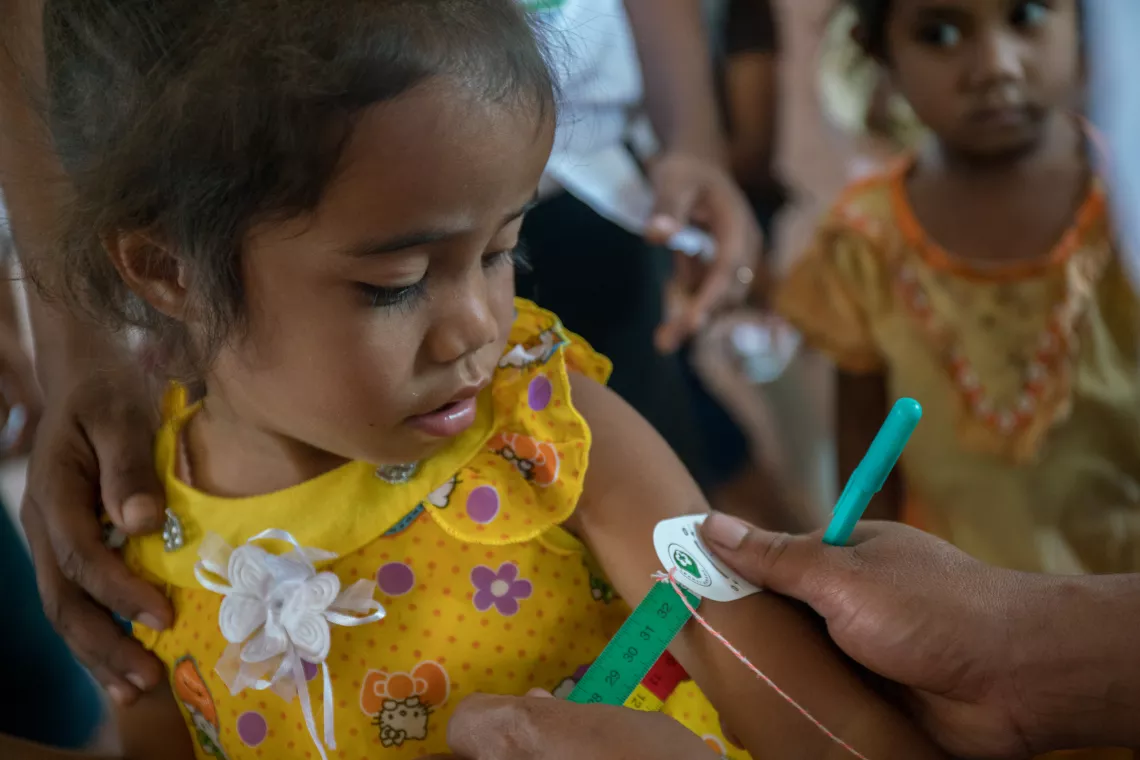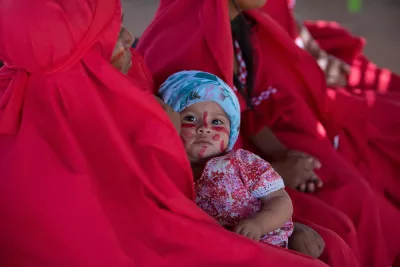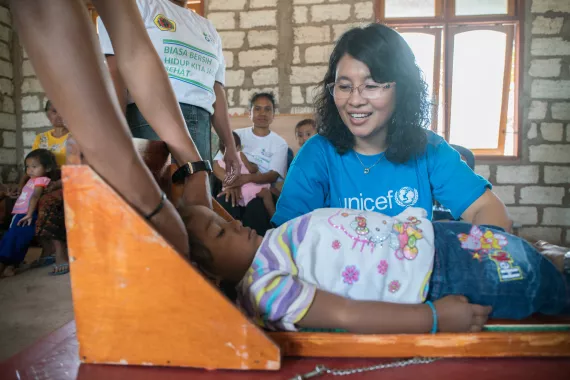The State of the World’s Children 2019
Children, food and nutrition

- Available in:
- English
- Bahasa Indonesia
Growing well in a changing world
For the first time in 20 years, UNICEF’s flagship report The State of the World’s Children examines the issue of children, food and nutrition, providing a fresh perspective on a rapidly evolving challenge.
Despite progress in the past two decades, one third of children under 5 are malnourished – stunted, wasted or overweight – while two thirds are at risk of malnutrition and hidden hunger because of the poor quality of their diets. These patterns reflect a profound triple burden of malnutrition – undernutrition, hidden hunger and overweight – that threatens the survival, growth and development of children and of nations. At the center of this challenge is a broken food system that fails to provide children with the diets they need to grow healthy.
This report provides new data and analyses of malnutrition in the 21st century and outlines recommendations to put children’s rights at the heart of food systems.
Nutrition in Indonesia
Over the past several decades, Indonesia has made remarkable strides as it has transitioned to a middle-income country. However, gains in nutrition have mostly lagged behind other areas of children’s development.
Millions of Indonesian children and adolescents continue to suffer from staggering rates of stunting and wasting. Moreover, Indonesia must grapple with the ‘double burden’ of malnutrition in which undernutrition and overnutrition coexist in the same country, district, community and household.

In 2018, close to 3 in 10 children under 5 years of age were stunted while 1 in 10 were wasted. A fifth of primary school-aged children are overweight or obese.
What We Do
UNICEF supports the Government of Indonesia to improve the enabling environment for nutrition, and to strengthen systems for the delivery of nutrition services. This includes providing policy advice, coordination and advocacy support; helping to generate evidence of best practices in nutrition; and providing technical assistance to expand the coverage and quality of high impact nutrition services for children and women, especially the most vulnerable.


